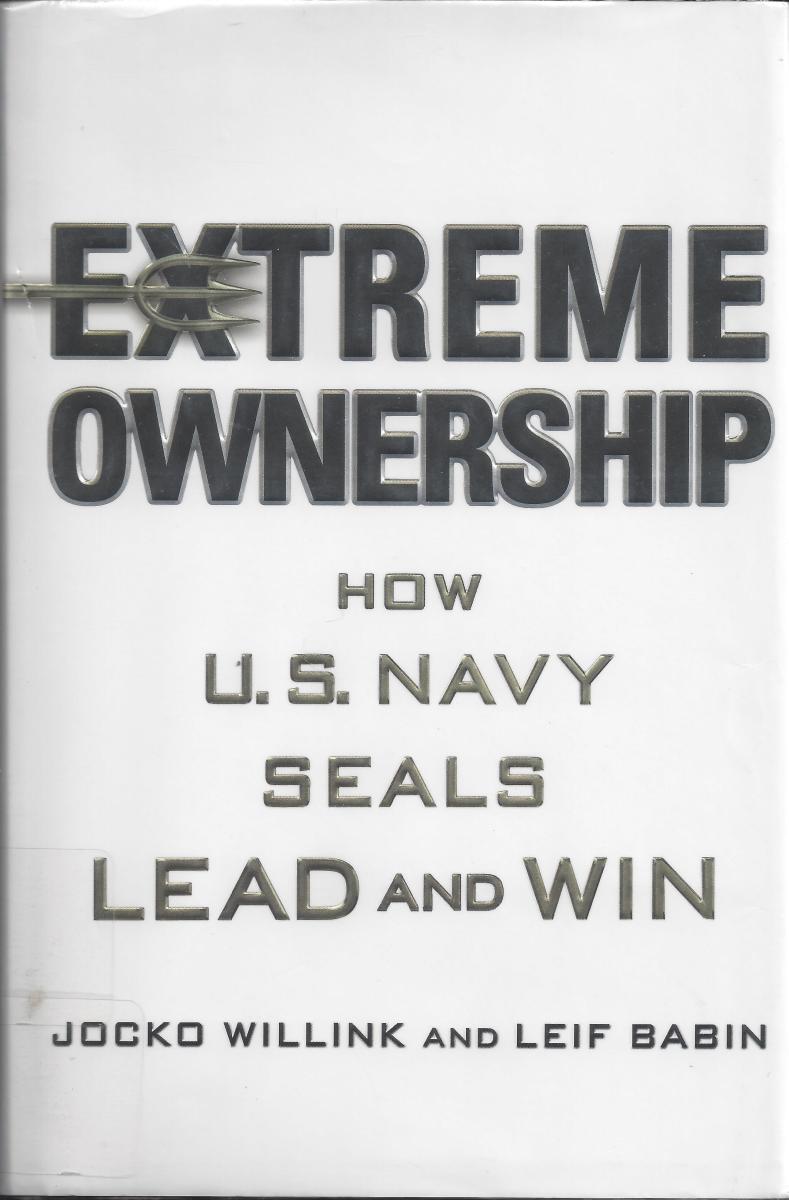Have you ever found yourself in a situation where you watched a project slip through your fingers, not because of external factors, but due to miscommunication and fractured team dynamics? What if I told you that the key to conquering these challenges lies in a simple yet profound principle known as “Extreme Ownership”? This intriguing concept, introduced in the book Extreme Ownership: How U.S. Navy SEALs Lead and Win, is not just a guide for military leaders; it’s a manifesto that applies to every aspect of life, from corporate boardrooms to at-home relationships.
Written by former Navy SEALs Jocko Willink and Leif Babin, the book is a culmination of their combat experiences and subsequent translation of these principles into corporate environments. At its core, Extreme Ownership advocates for complete responsibility over one’s actions, decisions, and the outcomes that follow. But how can such a radical way of thinking impact your daily life and career?
The premise of Extreme Ownership is both empowering and demanding. When you take full ownership of your team’s failures and successes, you eradicate the habit of placing blame on others. Consider this: when was the last time a conflict arose, and you instinctively pointed fingers at others? It’s a common reflex, yet it can be detrimental in fostering trust and collaboration. The authors assert that true leadership stems from vulnerability and the willingness to admit one’s faults. This is not only a call to personal accountability but also an invitation to grow.
Willink and Babin recount gripping tales from their time in Iraq, showcasing high-stakes scenarios where the principles of extreme ownership played vital roles. For instance, during a crucial mission, communication failures led to devastating consequences. The authors did not shy away from admitting their mistakes; instead, they embraced them, dissecting every aspect to enhance their future operations. Such transparency invites readers to reflect: How often do you dissect your failures? Do you identify the lessons learned, or do you simply wish them away?
This book challenges readers to embrace the notion that leaders must not only be accountable for their actions but must also cultivate a culture of ownership within their teams. The authors elucidate that when leaders take responsibility for failures, they set a powerful example, prompting team members to adopt the same mindset. This shift creates an environment conducive to open communication and innovation. If everyone in your team felt empowered to own their roles fully, imagine the potential for growth and collaboration that could blossom!
One of the most compelling aspects of Extreme Ownership is its rich tapestry of actionable lessons. The authors outline four primary principles: the importance of leading by example, the necessity of decentralized command, the value of prioritizing and executing, and the emphasis on maintaining discipline. Each principle is supported with vivid anecdotes, allowing readers to fully grasp their application in both war and peace—an essential duality.
Moreover, the book artfully discusses the concept of decentralized command, which emphasizes that every team member must understand not only their responsibilities but also the overarching goals. When every individual can comprehend the end game, it allows for tactical flexibility. If unexpected challenges arise, teams can adapt and respond swiftly without waiting for directives from above. This empowerment can dramatically enhance efficiency and morale. Are you ready to relinquish some control and instead trust your team to make decisions?
As you delve deeper into the text, another aspect that stands out is the emphasis on discipline. Willink and Babin argue that discipline equals freedom. At first glance, this may seem paradoxical, but the authors effectively illustrate that through discipline, individuals can achieve personal and professional clarity. Without the soothing structure of discipline, chaos reigns—think about how a lack of discipline might appear in your own life. Could tighter organization and prioritization lead you to better outcomes?
To amplify the narrative, the authors also delve into the psychological dimensions of leadership—how to inspire others, how to navigate interpersonal dynamics, and how to advance collective objectives. They illustrate that emotional intelligence is as essential as tactical prowess. Hence, emotional resilience and the ability to communicate effectively are underscored as indispensable facets of a strong leader. This begs the question: Are you nurturing your leadership style to include empathy and effective communication?
In conclusion, Extreme Ownership is not just a recounting of war stories; it’s a profound exploration of leadership dynamics that transcends traditional boundaries. Through gripping anecdotes, the authors present a persuasive case for adopting an all-encompassing ownership mindset, creating ripple effects in personal, professional, and social spheres. As you ponder the book’s teachings, reflect on your leadership journey. Are you ready to take the next step into leadership by embracing extreme ownership? Imagine the transformation that could manifest from a single mindset shift!
